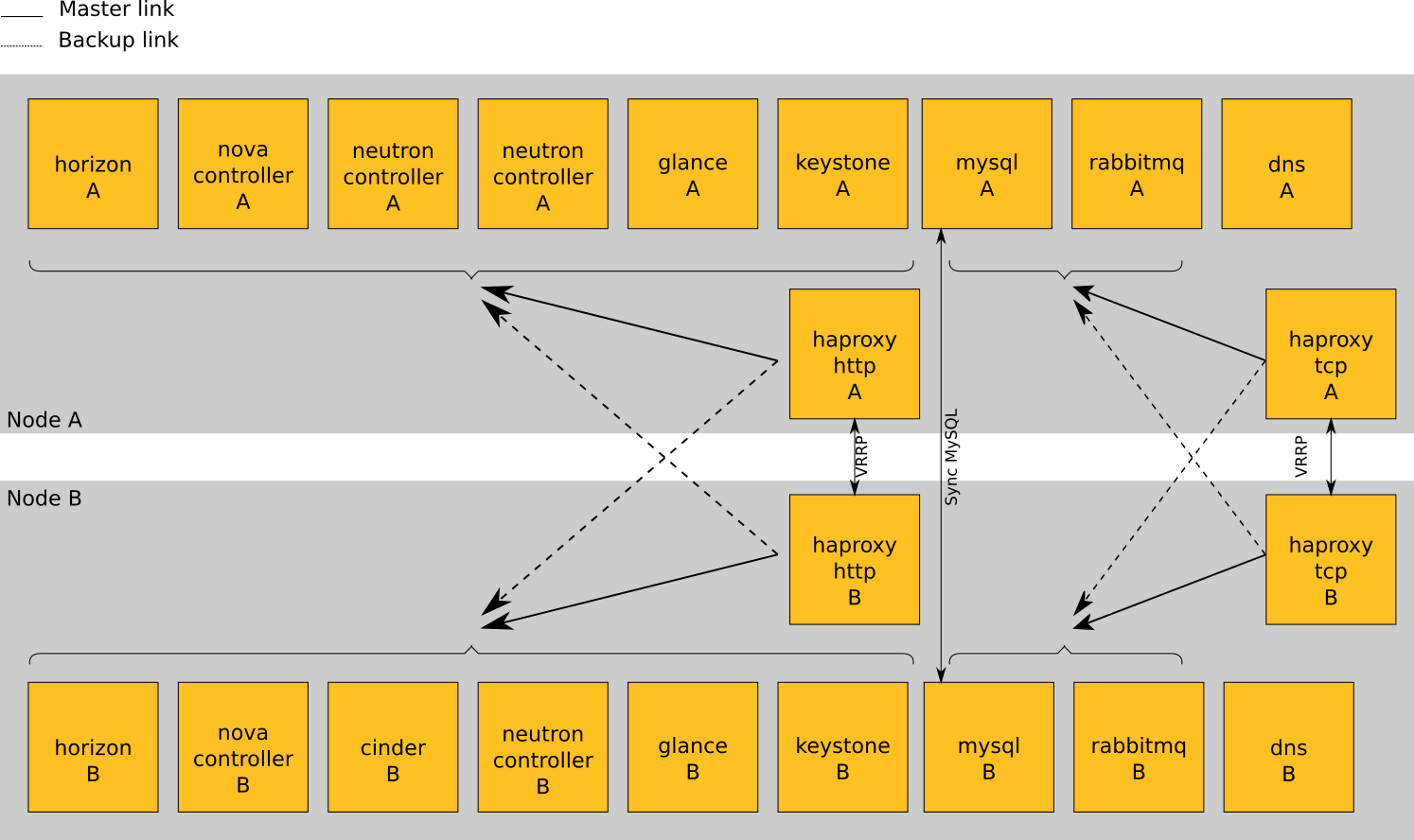Openstack installer and configuration by Orange Labs (Project code name: OpenSteak)
This repo contains the tools and the scripts to install a full Openstack Juno over Ubuntu 14.04.
It aims to propose an High Availability deployment with Bare Metal provisioning.
The configuration is automatically done with Puppet, Python scripts and Foreman.
To keep the module dependencies up to date (and to download modules automatically), we use r10k.
The storage is handled by Ceph.
The only thing you should do is to provide a valid YAML configuration file.
We use pure Puppet modules from OpenStack:
https://wiki.openstack.org/wiki/Puppet#Puppet_Modules
We also use an OpenSteak Puppet module to superseed the OpenStack modules:
https://github.com/Orange-OpenSource/opnfv-puppet
All dependencies between puppet modules are managed by r10k:
https://github.com/Orange-OpenSource/opnfv-r10k
see INSTALL
In a lab configuration, to optimize resource usage:
- All nodes are compute and storage: they all contains nova-compute, neutron-compute and ceph OSD
- 2 nodes are also controllers containing KVM VMs for Openstack bricks, a DNS node and HAproxy
- 1 node is a network gateway to external networks
On each server, we have at least 4 networks:
- br-int : Integration bridge. Tag/untag VLAN for VM. veth for VM will be in this bridge.
- br-vm : Distributed bridge between compute nodes. Used to transport VM flows. In our case, we use the physical interface name em5 as support for this bridge.
- br-adm : Administration bridge. This is used by controller part of OpenStack (which are in KVM) and other administrative tasks. In our case, we use the physical interface named em3 as support for this bridge. This network needs an internet access through a default gateway to proceed installation.
- br-storage: Storage bridge, used by the ceph cluster. In our case, we use the physical interface name em4 as support for this bridge.
The network server will also have one other bridge:
- br-ex : Bridge to communicate with external networks. In our case, we use the physical interface named em2 as support for this bridge.
Each controller part of Openstack is created separatly in a KVM machine. So that it can easily be updated or redeployed.
Each KVM machine is automatically created by a script (opensteak-create-vm) and basic configuration comes through cloud-init. Openstack related configuration is handled by puppet.
The work is still in progress, but we plan to use HAProxy in front of nodes, with VRRP IPs and weighted routes.
- Puppet modules:
- Mysql: OK,
- Rabbit: OK,
- Keystone: OK,
- Glance: OK,
- with ceph: OK,
- Cinder: OK,
- with ceph: OK,
- Nova: OK,
- with ceph: OK,
- Neutron: OK,
- Bare metal provisioning: OK with Foreman
- OpenDayLight: WiP
- High Availability: WiP



